Scan barcode
ashlerude's review against another edition
2.0
This one was a bit of a struggle for me. Partly because I didn't love the audiobook narrator and partly because there wasn't a whole lot of plot. And the ending was unsatisfying to me as well. Not my favorite Coelho book.
tashapages's review against another edition
5.0
Paolo Coelho really is a soul-touching writer. I’ve read two of his other works and I am always touched. This one surprised me because the story is based on Celtic Wiccan practices. Somehow Coelho’s writing feels like teachings. The main character, Brida, learns about life, the past, the soul and the universe through becoming a witch. As she goes through that journey, us, the readers learn about all those things also.
Amazing. Even if you don’t believe in religion or these religious practices don’t shy away from this! Highly recommend.
Amazing. Even if you don’t believe in religion or these religious practices don’t shy away from this! Highly recommend.
erica_o's review against another edition
1.0
I DID IT!
I survived this book!
I am a champion!
RAAAAAAR!

I had an extremely violent, visceral reaction to this story, not because of the mixing of religion and witchcraft, not because of the amorphous way this world worked, not because of the insistence that man and woman are the polar opposite sides of the same thing and that everything everywhere is binary - black and white, yin and yang, light and dark, sun and moon, day and night, no gray area ever. Not even because I rolled my eyes at nearly everything anyone said or did or thought.
No, my hackles were raised throughout my time with this book because it's wrong. It's so terribly, deeply, ignorantly wrong.
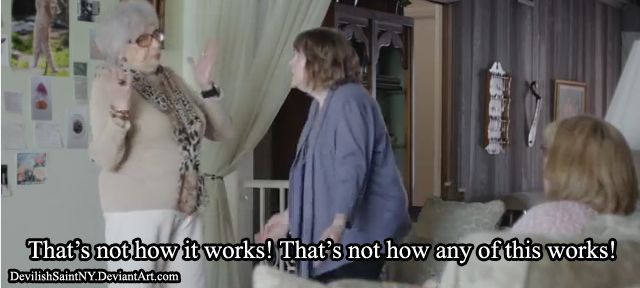
So you know how youths often romanticize an idea they know little to nothing about firsthand? I felt I was listening to that kind of writing. It's simplistic, not simple or unfussy but simplistic, as if words are hard and turning an entire imagined journey into those words is even harder. It's naive, filling in gaps of knowledge with vague references to things that sound lovely. It's insulting.
But moving on, let's meet our three main characters, the protagonist and her two mentors:
First, our heroine, Brida.

She’s young, she’s not the sharpest spoon in the drawer, and she wants to be a witch when she grows up. Hooray! So she travels to the forest to find a wizard she heard about and he initiates her into The Dark Knight.

Oops. Sorry. I meant
The Dark Night
You know, like Of the Soul.
The dark night of the soul.
That kind of dark night.
And it's not as erotic as it might sound. He leaves her alone in the woods all night, watching from afar as she talks to herself until the sun comes up.
First test: Passed! She can now enter into the learning of witchery.
Oh, by the way, she's Irish and they're in Ireland but except for Dublin showing up here and there and mention of Celtic wise ones back in the day, there's no way to know this other than being told a few times. The narrator doesn't even use an accent when voicing these characters.
The second character we meet, The Magus, is her male mentor, a warlock who lives in the aforementioned woods.

He is fascinated by her because he can tell that, clearly, she has a gift but also, she is his soulmate. He is twice her age and is something of a creeper, as you may have noted from the whole watching her in the woods thing I mentioned earlier but it’s ok because they’re soulmates. It's not gross if it's your soulmate.

We meet the boyfriend but he's not really important right now because we need to get to the next mentor, Wicca.
Wicca? The female mentor’s name is Wicca?
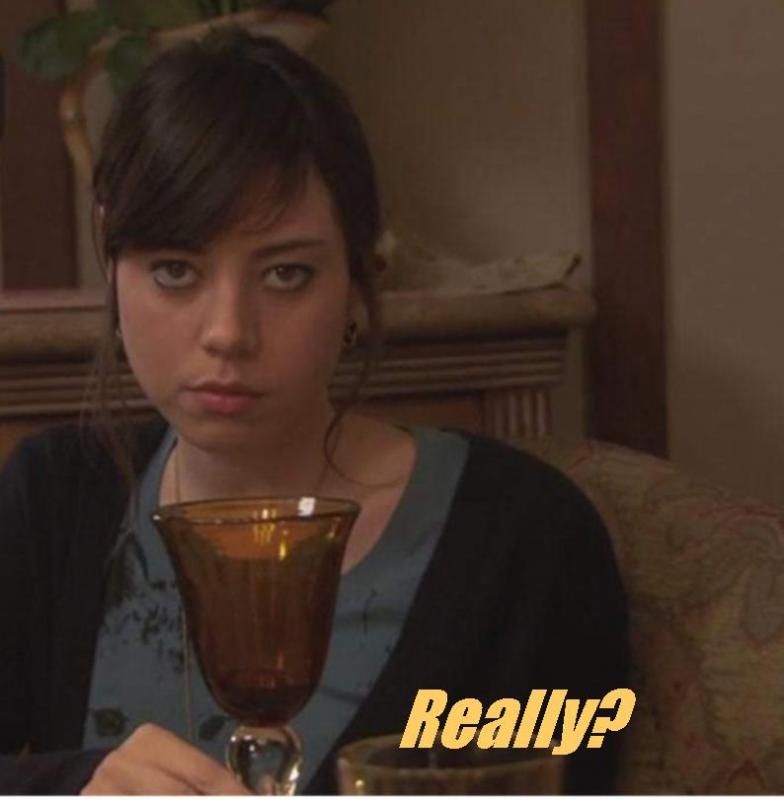
But! But, she's so hip, so cool, so beautiful, so distant. She’s such a good teacher except for all the information she withholds. She's a real modern-day witch and you know this because the author tells you. And she's really beautiful. But old. Like, 40. But still beautiful.

She wants to teach Brida who, clearly, has a gift, and Wicca wants to know both what that gift is and why The Magus was interested in Brida. Lessons abound but are not so much teaching tools and learning moments as they are strange things that this weird (but hip and cool) lady does because she's kind of arrogant and imparts that the devil is in the details but that there's a magic to be found in zoning out during phone calls. Remember, she's a great teacher. Even if you don't agree, you'll be reminded of her great teacherly ways several times throughout the story.
Alright. We've got the main characters. Now we must puzzle out a few things, such as learning witchcraft via The Tradition of the Sun (which has something maybe to do with Christianity but I'm not sure and it might be the way artists learn but I'm not sure. The Magus is a spokesperson for the Way of the Sun but he teaches the Way of the Moon...I think. I'm not sure) or through The Tradition of the Moon (I think this is stereotypical female witchcraft, the kind that got you burned in Salem, but I'm not sure. I want to say this is the feminine version of magic but I don't think it is but, again, I'm not sure). Also, soulmates. We have lots of soulmates because there was a group of original souls and they shattered and became many souls so it's possible to meet up with other people who contain shards of the same soul you have a shard of...I think. I'm not sure.
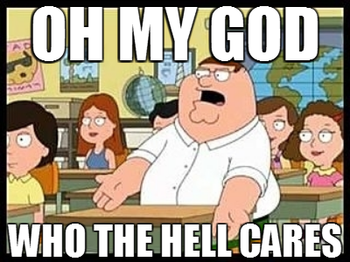
And this all falls under the umbrella of God. And also Jesus because he was a Way of the Sun dude. I think. I'm not sure. I think you collect soulmates to find a path to God over a bunch of lifetimes and when you win, you finally get to die one last time and move on to an astral plane? Maybe?
It's all pretty vague and not really important because soulmates.
And God.
And suns and moons and ways.

Did I mention this is also sorta sexist?
Exhibit A. That’s the great problem with anyone wanting to study magic...when we set out on the path, we always have a fairly clear idea of of what we hope to find. Women are generally seeking their soulmate and men are looking for power. Neither party is really interested in learning, they simply want to reach the thing they set as their goal.
Exhibit B. In a sensual but non-consensual moment of learning, Wicca unbuttons Brida’s jeans and pulls her tshirt up to expose her belly but doesn’t ask permission or explain what she's doing. Then she puts a stone on Brida's belly and another on her forehead and this is the equivalent of magical pillow fights while wearing negligees and kitten heels.
Exhibit C. Also explained: Women have the power of transformation. Male knowledge + Female transformation = Great magical union = Wisdom.
Apparently, there is no homosexuality here because soulmates can only connect as man and woman as we sort of glimpse when two men with the same soul shard come into contact later on in this tale.
Exhibit D. Women choose to find revelation through four embodiments: The Virgin, who lives for love but lives in solitude; The Martyr, who sacrifices all; The Saint, has to give and give because that is what leads to receiving; The Witch, who finds revelation through pleasure. This is a terribly skewed idea of women. It’s another Virgin/Madonna/Whore/Crone
Exhibit E. Wicca schools Brida with fashion advice. The Magus never gives or receives fashion advice. No male in the story does. But Brida, witch-to-be, finds she has a complicated relationship with her clothes because outfits have power and some were meant for you but those that were not will always bring you bad luck.
And then they go shoe-shopping (they don't...but they do go shopping for other stuff)
Exhibit F. And then feminine intuition rears its head toward the end because we all know witchcraft and magical femaleness are inseparable, the same thing, really.
Dude, stop. Just, stop. This is not your mysticism to explain so please stop trying. Stick to your own brand of spirituality, k? And, you know? We already got the message, actually, in [b:The Alchemist|865|The Alchemist|Paulo Coelho|https://i.gr-assets.com/images/S/compressed.photo.goodreads.com/books/1483412266l/865._SY75_.jpg|4835472] which, amazingly enough, shows up here, too!
...we realize that there is a reason for us being here and, for us, that is enough. We plunge into the Dark Night with faith, we fulfill what the ancient alchemists used to call our personal legend and we surrender ourselves fully to each moment knowing there is always a hand to guide us…
Wow.
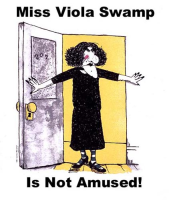
In addition to all that nonsense, there's general silliness.
“... you have a gift”
“How do you know?”
“By your ears...People born with a gift have very small, attached earlobes.”
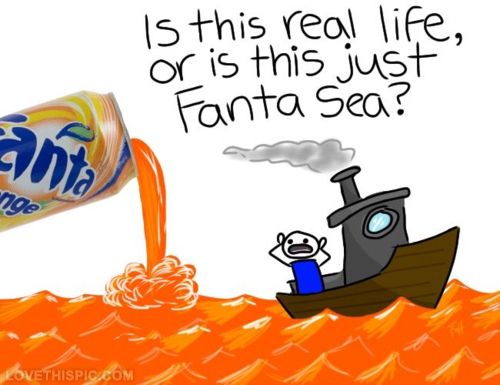
And why is the magus growing bromeliads in the forests of Ireland? Because magic? That’s cruel to the bromeliads which are tropical plants. Ireland is not tropical. Wet, maybe, but not tropical.
I realize that perhaps a lot was lost in translation. Even so, I couldn't help but feeling like the author had taken someone else’s story about a subject he doesn’t understand and tried to make it his own but ruined it. He had to use smoke and mirrors to fill in for his gaps in knowledge and his gaps were wide and frequent. In addition, I felt like he was trying to shoehorn the stolen story into a framework that makes him comfortable because it seems witchcraft, which is tied into the Female, apparently, can’t be what it is but has to relate to his brand of religion and spirituality in order to make it acceptable.
While listening to this, I went into a trance and saw the author as a young boy, sitting with his aunts and mother, grandmothers and sisters, girl cousins and lady neighbors, listening to them talk about their powers, their divinities, their understanding of the mystical. Maybe he saw things he couldn't explain. He obviously loved and respected these women but knew that, as a male, he had to somehow find a way to be in charge of all they had, all this power that was beyond him, he had to control instead of understand this thing these women spoke of. As he aged and gained experience, he carefully created a loose narrative to fit his own beliefs around theirs and he felt very good about himself afterward.
But I just made that up. I don't know anything about this author beyond the little Goodreads bio. I can't say what he did or did not experience that lead him to write this book. All I know is that I deeply, instictively felt this story was never his to tell and yet tell it, he did, and he did a piss poor job because instead of sharing wonder, he stole it, trapped it, and framed it in a way to showcase his own path to enlightenment.
But whatever.
I'm out.

I survived this book!
I am a champion!
RAAAAAAR!

I had an extremely violent, visceral reaction to this story, not because of the mixing of religion and witchcraft, not because of the amorphous way this world worked, not because of the insistence that man and woman are the polar opposite sides of the same thing and that everything everywhere is binary - black and white, yin and yang, light and dark, sun and moon, day and night, no gray area ever. Not even because I rolled my eyes at nearly everything anyone said or did or thought.
No, my hackles were raised throughout my time with this book because it's wrong. It's so terribly, deeply, ignorantly wrong.

So you know how youths often romanticize an idea they know little to nothing about firsthand? I felt I was listening to that kind of writing. It's simplistic, not simple or unfussy but simplistic, as if words are hard and turning an entire imagined journey into those words is even harder. It's naive, filling in gaps of knowledge with vague references to things that sound lovely. It's insulting.
But moving on, let's meet our three main characters, the protagonist and her two mentors:
First, our heroine, Brida.

She’s young, she’s not the sharpest spoon in the drawer, and she wants to be a witch when she grows up. Hooray! So she travels to the forest to find a wizard she heard about and he initiates her into The Dark Knight.

Oops. Sorry. I meant
The Dark Night
You know, like Of the Soul.
The dark night of the soul.
That kind of dark night.
And it's not as erotic as it might sound. He leaves her alone in the woods all night, watching from afar as she talks to herself until the sun comes up.
First test: Passed! She can now enter into the learning of witchery.
Oh, by the way, she's Irish and they're in Ireland but except for Dublin showing up here and there and mention of Celtic wise ones back in the day, there's no way to know this other than being told a few times. The narrator doesn't even use an accent when voicing these characters.
The second character we meet, The Magus, is her male mentor, a warlock who lives in the aforementioned woods.

He is fascinated by her because he can tell that, clearly, she has a gift but also, she is his soulmate. He is twice her age and is something of a creeper, as you may have noted from the whole watching her in the woods thing I mentioned earlier but it’s ok because they’re soulmates. It's not gross if it's your soulmate.

We meet the boyfriend but he's not really important right now because we need to get to the next mentor, Wicca.
Wicca? The female mentor’s name is Wicca?

But! But, she's so hip, so cool, so beautiful, so distant. She’s such a good teacher except for all the information she withholds. She's a real modern-day witch and you know this because the author tells you. And she's really beautiful. But old. Like, 40. But still beautiful.

She wants to teach Brida who, clearly, has a gift, and Wicca wants to know both what that gift is and why The Magus was interested in Brida. Lessons abound but are not so much teaching tools and learning moments as they are strange things that this weird (but hip and cool) lady does because she's kind of arrogant and imparts that the devil is in the details but that there's a magic to be found in zoning out during phone calls. Remember, she's a great teacher. Even if you don't agree, you'll be reminded of her great teacherly ways several times throughout the story.
Alright. We've got the main characters. Now we must puzzle out a few things, such as learning witchcraft via The Tradition of the Sun (which has something maybe to do with Christianity but I'm not sure and it might be the way artists learn but I'm not sure. The Magus is a spokesperson for the Way of the Sun but he teaches the Way of the Moon...I think. I'm not sure) or through The Tradition of the Moon (I think this is stereotypical female witchcraft, the kind that got you burned in Salem, but I'm not sure. I want to say this is the feminine version of magic but I don't think it is but, again, I'm not sure). Also, soulmates. We have lots of soulmates because there was a group of original souls and they shattered and became many souls so it's possible to meet up with other people who contain shards of the same soul you have a shard of...I think. I'm not sure.

And this all falls under the umbrella of God. And also Jesus because he was a Way of the Sun dude. I think. I'm not sure. I think you collect soulmates to find a path to God over a bunch of lifetimes and when you win, you finally get to die one last time and move on to an astral plane? Maybe?
It's all pretty vague and not really important because soulmates.
And God.
And suns and moons and ways.

Did I mention this is also sorta sexist?
Exhibit A. That’s the great problem with anyone wanting to study magic...when we set out on the path, we always have a fairly clear idea of of what we hope to find. Women are generally seeking their soulmate and men are looking for power. Neither party is really interested in learning, they simply want to reach the thing they set as their goal.
Exhibit B. In a sensual but non-consensual moment of learning, Wicca unbuttons Brida’s jeans and pulls her tshirt up to expose her belly but doesn’t ask permission or explain what she's doing. Then she puts a stone on Brida's belly and another on her forehead and this is the equivalent of magical pillow fights while wearing negligees and kitten heels.
Exhibit C. Also explained: Women have the power of transformation. Male knowledge + Female transformation = Great magical union = Wisdom.
Apparently, there is no homosexuality here because soulmates can only connect as man and woman as we sort of glimpse when two men with the same soul shard come into contact later on in this tale.
Exhibit D. Women choose to find revelation through four embodiments: The Virgin, who lives for love but lives in solitude; The Martyr, who sacrifices all; The Saint, has to give and give because that is what leads to receiving; The Witch, who finds revelation through pleasure. This is a terribly skewed idea of women. It’s another Virgin/Madonna/Whore/Crone
Exhibit E. Wicca schools Brida with fashion advice. The Magus never gives or receives fashion advice. No male in the story does. But Brida, witch-to-be, finds she has a complicated relationship with her clothes because outfits have power and some were meant for you but those that were not will always bring you bad luck.
And then they go shoe-shopping (they don't...but they do go shopping for other stuff)
Exhibit F. And then feminine intuition rears its head toward the end because we all know witchcraft and magical femaleness are inseparable, the same thing, really.
Dude, stop. Just, stop. This is not your mysticism to explain so please stop trying. Stick to your own brand of spirituality, k? And, you know? We already got the message, actually, in [b:The Alchemist|865|The Alchemist|Paulo Coelho|https://i.gr-assets.com/images/S/compressed.photo.goodreads.com/books/1483412266l/865._SY75_.jpg|4835472] which, amazingly enough, shows up here, too!
...we realize that there is a reason for us being here and, for us, that is enough. We plunge into the Dark Night with faith, we fulfill what the ancient alchemists used to call our personal legend and we surrender ourselves fully to each moment knowing there is always a hand to guide us…
Wow.

In addition to all that nonsense, there's general silliness.
“... you have a gift”
“How do you know?”
“By your ears...People born with a gift have very small, attached earlobes.”

And why is the magus growing bromeliads in the forests of Ireland? Because magic? That’s cruel to the bromeliads which are tropical plants. Ireland is not tropical. Wet, maybe, but not tropical.
I realize that perhaps a lot was lost in translation. Even so, I couldn't help but feeling like the author had taken someone else’s story about a subject he doesn’t understand and tried to make it his own but ruined it. He had to use smoke and mirrors to fill in for his gaps in knowledge and his gaps were wide and frequent. In addition, I felt like he was trying to shoehorn the stolen story into a framework that makes him comfortable because it seems witchcraft, which is tied into the Female, apparently, can’t be what it is but has to relate to his brand of religion and spirituality in order to make it acceptable.
While listening to this, I went into a trance and saw the author as a young boy, sitting with his aunts and mother, grandmothers and sisters, girl cousins and lady neighbors, listening to them talk about their powers, their divinities, their understanding of the mystical. Maybe he saw things he couldn't explain. He obviously loved and respected these women but knew that, as a male, he had to somehow find a way to be in charge of all they had, all this power that was beyond him, he had to control instead of understand this thing these women spoke of. As he aged and gained experience, he carefully created a loose narrative to fit his own beliefs around theirs and he felt very good about himself afterward.
But I just made that up. I don't know anything about this author beyond the little Goodreads bio. I can't say what he did or did not experience that lead him to write this book. All I know is that I deeply, instictively felt this story was never his to tell and yet tell it, he did, and he did a piss poor job because instead of sharing wonder, he stole it, trapped it, and framed it in a way to showcase his own path to enlightenment.
But whatever.
I'm out.

jennifer1993figueroa's review against another edition
4.0
"Brida" es una novela que me cautivó por su profundidad espiritual y su enfoque en la búsqueda del autoconocimiento. Lo que más me gustó fue cómo Paulo Coelho combina el aprendizaje espiritual con la exploración del concepto de almas gemelas, mostrando que el amor y la conexión trascendental pueden guiarnos en nuestro camino personal.
bobbingal's review against another edition
2.0
Wahrscheinlich das falsche Buch zur falschen Zeit.
Für mich zu mystisch, zu sprituell und überhaupt
Für mich zu mystisch, zu sprituell und überhaupt
solizbe's review against another edition
1.0
Meh. The main character unfortunately had less appeal than a rock. I did not care about her nor did I identify with her at all as she was quite two-dimensional. Coelho was trying too hard to prove a point that he did not care about too much about the development of characters in the novel. Most conversations felt forced and awkward. Nevertheless, I like the writing style even though the plot was extremely boring.
nathys_8's review against another edition
4.0
I enjoyed the book, I particularly liked how the mixed religion and witchcraft (which a lot of people probably won't/didn't). But I thought it made sense, since I do not think of religion as black and white as they indoctrinate us in catechism school. I would say it was a beatiful love story in the end but I would have wanted more. All in all is not a book for everyone, especially if you are not willing to keep an open mind.
liiz0829's review against another edition
2.0
Solo puedo decir que Paulo y yo no hace clic... nada para para agregar
skamibayashi's review against another edition
3.0
I expected more after reading The Alchemist, but still a good read.